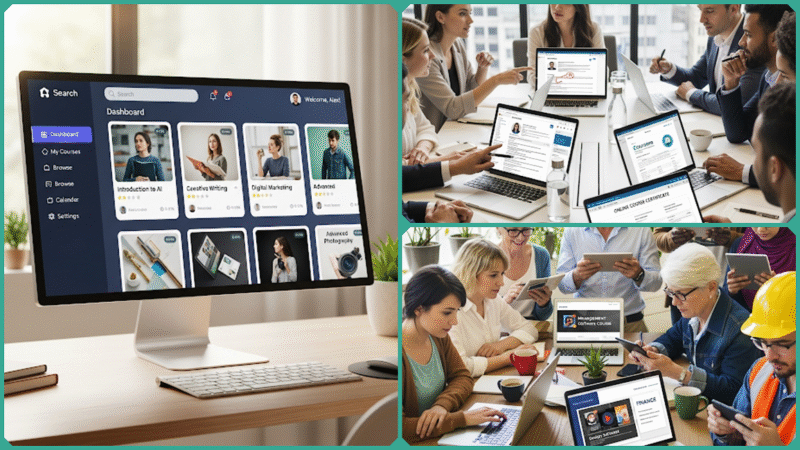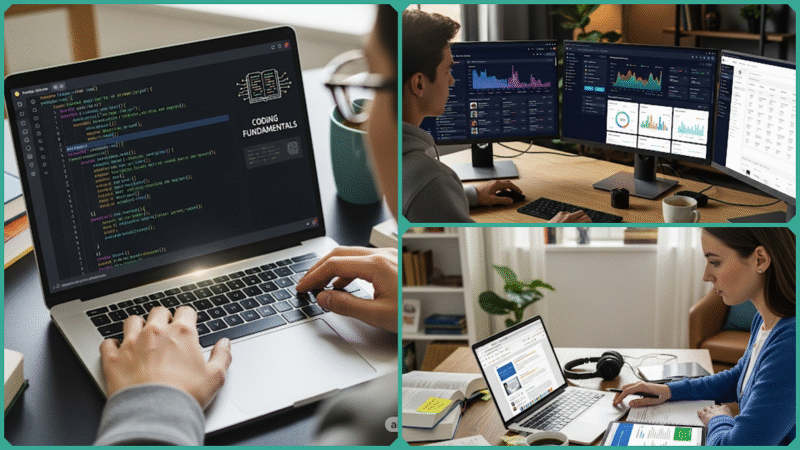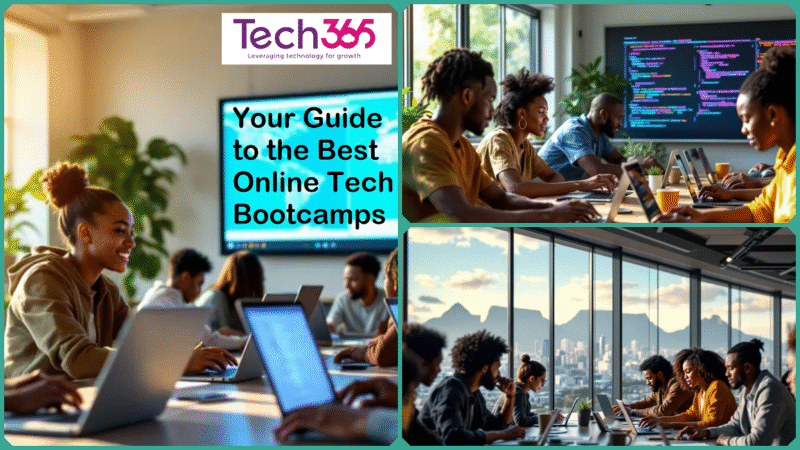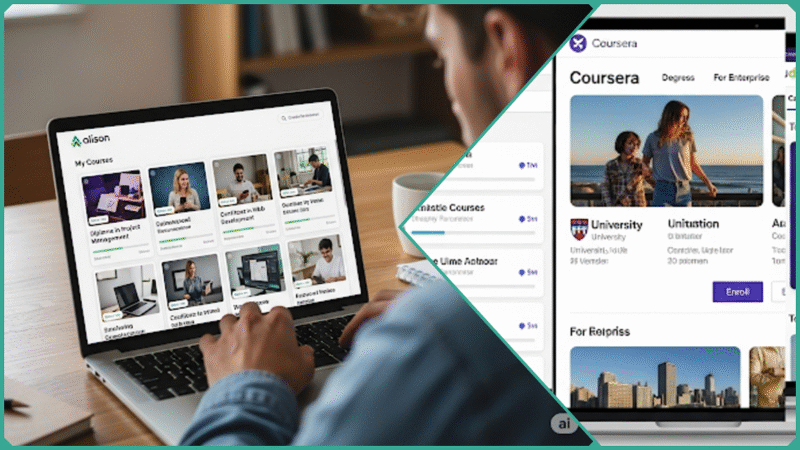How to Learn Python Basics Free Online: 9 Resources You Need
Estimated reading time: 19 minutes
If you are an absolute beginner who is curious about programming or thinking about making a career change into the tech industry, learning Python is undoubtedly one of the smartest and most practical choices you can make. Python is renowned for its user-friendliness and accessibility, making it an ideal choice for beginners.
It is also widely used across a broad spectrum of fields, including web development, data science, artificial intelligence, automation, and many other exciting areas, giving you plenty of opportunities to apply your skills in real-world scenarios. The best part? You don’t need costly courses or degrees to begin—there are plenty of free, high-quality resources online that teach Python basics in a simple and accessible way.
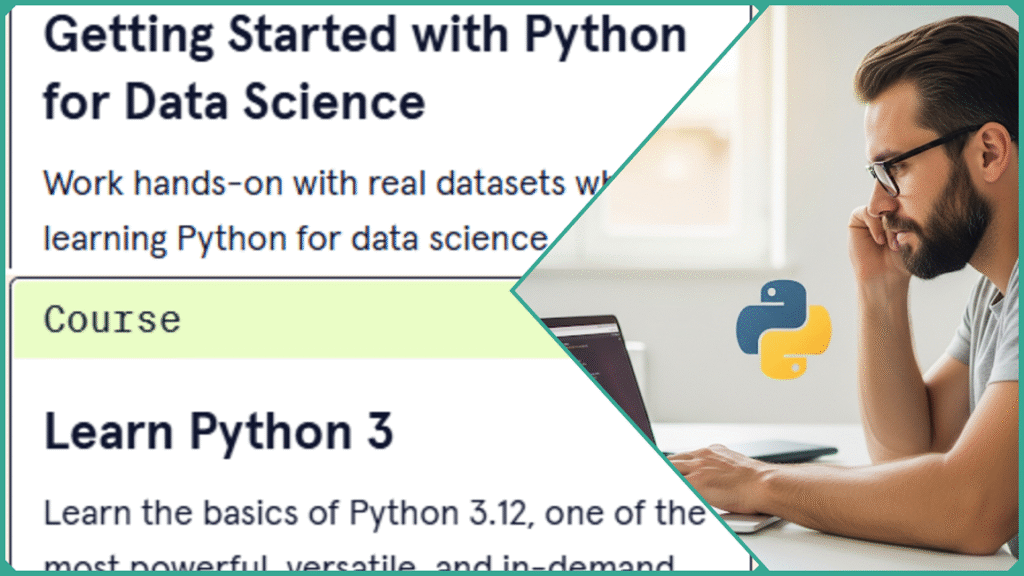
This article curates the top 9 free online resources to learn Python basics, tailored for absolute beginners, students on a budget, curious hobbyists, and upskillers seeking a structured, supportive, and interactive introduction to coding with Python.
Whether you prefer watching detailed video tutorials, engaging in interactive exercises, reading comprehensive text-based guides, or working through practical hands-on projects, these carefully curated resources are designed to accommodate all types of learning styles. They will equip you with a solid foundation and the essential knowledge needed to confidently develop and advance your Python programming skills to the next level.
Why Learning Python Basics Matters
Learning Python basics is incredibly important because Python stands as one of the most popular and widely used programming languages across the globe. According to recent data from GitHub, it is ranked as the second most used programming language, highlighting its extensive adoption by developers everywhere.
One of the key reasons for its popularity is its simple syntax, which closely resembles the English language. This readability makes Python highly accessible and much less intimidating, especially for beginners who are just starting their coding journey. As a result, this ease of understanding helps encourage a larger number of people to begin programming with confidence and enthusiasm.
Mastering the basics of Python programming opens up a wide range of significant opportunities across numerous and diverse domains and industries:
- Career growth: Python developers are in exceptionally high demand, not just within traditional technology-focused roles but also across a wide variety of other industries. Fields such as finance, marketing, and healthcare increasingly rely on professionals with strong programming skills. These skills enable them to automate complex processes, analyze vast amounts of data efficiently, and develop innovative solutions. As a result, Python developers enjoy diverse career opportunities and the potential for significant professional advancement in many different sectors.
- Automation: Python empowers users to efficiently automate repetitive and time-consuming tasks, significantly enhancing productivity across a wide range of personal and professional environments. By leveraging Python’s versatile libraries and straightforward syntax, individuals can streamline workflows, reduce manual effort, and focus on higher-value activities, making automation accessible and impactful for diverse applications.
- Data Science and AI: Python serves as the primary and most widely used programming language for data analysis, machine learning, and artificial intelligence applications. Gaining a solid foundational knowledge of Python is essential for anyone looking to successfully enter and thrive in these rapidly growing and highly competitive fields. Understanding Python’s capabilities and libraries opens up numerous opportunities in data-driven industries and AI research.
- Web development: Python frameworks greatly facilitate the rapid and highly efficient creation of websites and web applications, empowering even those who are beginners to confidently build fully functional and dynamic online projects with ease and reliability.
For beginners just starting their coding journey, having access to free, credible, and beginner-friendly resources is essential. These resources help to demystify the often complex world of coding, build confidence in learners as they develop new skills, and promote continued learning and growth—all without the significant hurdle of financial costs.
This democratization of learning technology plays a crucial role in making education accessible to a wide range of learners, including complete newcomers who have never programmed before, as well as individuals looking to switch careers. By removing barriers to entry, these resources empower people to gain vital skills and pursue exciting new opportunities in the rapidly evolving tech industry.
Essential Python Concepts for Beginners
Before diving into the resources, it’s important to familiarize yourself with some key foundational Python concepts that you are very likely to encounter throughout your learning journey. Understanding these basics will help you build a strong programming foundation and make the learning process much smoother and more effective.
These core ideas form the backbone of Python programming and will be essential as you progress through more advanced topics and practical applications.
- Syntax and Variables: A comprehensive guide on how to write Python code effectively and efficiently, along with detailed explanations on how to store and manage data using variables.
- Data Types: Gaining a thorough understanding of various fundamental data types such as integers, floating-point numbers (floats), strings, lists, and dictionaries is essential. These data types form the building blocks for storing and manipulating information effectively in programming. By mastering integers and floats, you can handle numerical data accurately, while strings enable you to work with textual information. Lists allow you to organize multiple items in an ordered collection, and dictionaries provide a powerful way to store data in key-value pairs for quick lookup and management.
- Control Flow: Utilizing various loops and conditional statements to effectively manage and direct the flow of a program’s execution, allowing for dynamic decision-making and repeated actions based on specific conditions.
- Functions: Writing reusable blocks of code that can be executed multiple times throughout a program, allowing for better organization, reduced redundancy, and easier maintenance. Functions help break down complex problems into smaller, manageable pieces, making the code more readable and efficient.
- Object-Oriented Basics: Understanding classes and objects is fundamental for structured programming, as they provide a clear and organized way to model real-world entities and their interactions within software applications.
- Error Handling: Effectively managing exceptions and thoroughly debugging code to ensure smooth program execution and to prevent unexpected crashes or malfunctions.
The Top 9 Free Resources to Learn Python Basics
Here is a comprehensive and well-organized overview of the Top 9 Free Resources to Learn Python Basics, providing a detailed summary of their formats, ideal users, and key benefits, along with convenient direct links to each resource for easy access and exploration:
| Resource Name | Format | Best For | Highlights |
|---|---|---|---|
| Python.org | Text-based tutorials | Absolute beginners & reference users | Official documentation and beginner-friendly guides; large, active community; reliable source |
| Codecademy – Learn Python 3 | Interactive exercises | Learners who prefer hands-on coding | High-quality Google materials progressing from basics to full programs; video and text combined. |
| Coursera – Python for Everybody | Video lectures + quizzes | Beginners seeking structured learning | University-level course by Dr. Charles Severance with clear video lectures; practical assignments |
| Google’s Python Class | Written materials + videos | Beginners with slight prior coding | High-quality Google materials progressing from basics to full programs; video and text combined |
| LearnPython.org | Interactive tutorial | Visual and interactive learners | Step-by-step Python basics; embedded coding challenges; no setup needed |
| Mimo Python Course | App-based interactive lessons | Learners wanting mobile flexibility | Bite-sized lessons, AI hints, and portfolio projects; free basic plan; gamified experience |
| Invent with Python | eBooks + exercises | Project and challenge-focused learners | Simple explanations with practical projects and programming exercises |
| . KDnuggets Python Guide | Articles and tutorials | Data science and AI enthusiasts | In-depth articles linking Python basics to data science, AI, and industry trends |
| YouTube (e.g., freeCodeCamp.org) | Video tutorials | Visual learners preferring videos | Comprehensive, beginner-friendly Python playlists with live coding demos |
Python.org – The Official Beginner’s Guide
The official Python website is undoubtedly the best place to begin your journey if you are looking for reliable and current information about Python programming. The Python Beginner’s Guide provides detailed and well-organized explanations of essential topics, including Python syntax, installation procedures, and core programming concepts.
This guide is not only perfect for beginners to get started, but also acts as a helpful reference resource that you can return to as you advance and deepen your understanding of Python over time.
- Benefits:
- Authoritative and maintained by the creators of Python.
- Beginner tutorials in multiple languages.
- Access to documentation on libraries and modules.
- Exercises and quizzes to reinforce learning.
Many experts and experienced course creators highly recommend frequently referencing Python.org as a reliable resource to troubleshoot issues or to deepen your understanding of specific topics. By consistently consulting this official site, you can ensure that you are learning correct, idiomatic, and up-to-date Python code, which is essential for writing high-quality programs and advancing your skills effectively.
Codecademy – Learn Python 3 Interactive Course
Codecademy provides a widely recognized and highly popular Learn Python 3 course that is specifically designed for beginners who want to start coding from scratch. This course offers interactive lessons that allow you to write Python code directly inside your web browser, making the learning process both convenient and hands-on.
Throughout the course, you will quickly get familiar with essential programming concepts such as variables, loops, and functions, gaining practical experience by writing and testing code right away. This approach ensures that you not only understand the theory but also apply what you have learned in real time through consistent practice.
- Benefits:
- Immediate, hands-on coding with real-time feedback.
- Modular lessons that you can progress at your own pace.
- Covers essential Python basics thoroughly.
- Free tier covers most beginner needs.
This resource is perfectly suited for those who prefer an active, hands-on approach to learning by actually doing the tasks themselves. It eliminates the common difficulties and frustrations associated with setting up local environments or dealing with complex Integrated Development Environments (IDEs), making the learning process smoother and more efficient.
Coursera – Python for Everybody
Taught by the renowned Dr. Charles Severance, this excellent Coursera course is widely recognized and highly praised for effectively helping beginners thoroughly master the fundamentals of Python programming and essential data handling techniques. The course combines clear and engaging video lectures with a variety of interactive quizzes and practical assignments designed to reinforce learning and build real-world skills.
- Benefits:
- Structured curriculum perfect for self-paced, sequential learning.
- Real-world Python applications related to data.
- Free access to full course content (certificate available for a fee).
Ideal for individuals who are looking for a comprehensive experience that combines both academic rigor and practical assignments in a single, well-structured package. This approach is perfect for those who want to challenge themselves intellectually while also gaining hands-on experience that can be directly applied in real-world scenarios.
Google’s Python Class
Google’s free Python course offers a comprehensive blend of engaging video lectures, detailed written explanations, and hands-on coding exercises. This course is specifically designed for learners who already possess a small amount of prior programming knowledge but are eager to develop practical and effective Python skills in a relatively short period. It provides a well-rounded learning experience that helps students build their coding abilities step by step.
- Benefits:
- High-quality materials are used internally at Google.
- Exercises progress from basic syntax to complex problems.
- Parallel video lectures complement the written content.
Recommended for learners who are eager to gain a fast yet thorough immersion into the fundamental and advanced concepts of Python coding. This program is designed to provide a deep understanding in a short amount of time, making it ideal for those who want to quickly build solid skills in Python programming.
LearnPython.org – Free Interactive Tutorial
LearnPython.org provides a welcoming and user-friendly interactive Python tutorial available online that requires absolutely no downloads or complicated setup processes. The clear and straightforward lessons are designed specifically to help beginners grasp the essential core fundamentals of Python programming. Each lesson includes embedded coding challenges that allow learners to practice and reinforce their new skills immediately.
- Benefits:
- Code exercises are embedded directly in the webpage.
- Covers everything from basics to advanced concepts.
- Free for everyone with optional certification.
Ideal for users who are looking for a quick, hands-on experience that allows them to focus fully without any distractions or interruptions. This setup is perfect for those who want to dive right in and engage directly with the task at hand, maximizing their learning and productivity in a streamlined environment.
Mimo’s Python Course and Career Track
Mimo specializes in providing bite-sized, interactive coding lessons that are easily accessible through both web browsers and mobile applications. Their Python fundamentals course is specially designed for beginners who enjoy a gamified learning experience, making the process engaging and fun. This course is ideal for those who want to build practical projects, such as games and AI tools while strengthening their coding skills step by step.
- Benefits:
- AI-powered hints when you’re stuck.
- Small lessons that fit daily schedules.
- Builds portfolio projects to demonstrate skills.
- Free access with optional premium upgrades.
This program is excellent for learners who wish to combine hands-on coding practice with building career-focused projects, all while having the flexibility to learn on the go. It provides a practical approach that supports skill development in real-world scenarios, making it ideal for those aiming to enhance their programming abilities alongside creating a professional portfolio. This way, learners can effectively balance their education with other commitments and gain valuable experience simultaneously.
Invent with Python
Created by the experienced software developer Al Sweigart, this website provides a vast collection of free eBooks and a variety of exercises specifically designed for beginners in programming. It strongly focuses on the educational approach of learning through hands-on experience by creating practical projects and tackling diverse programming challenges, helping users to build their skills effectively.
- Benefits:
- Easy-to-understand explanations.
- Programming exercises to apply learnings.
- Focus on learning through practical coding projects.
Recommended for learners who prefer and enjoy a more hands-on, project-based approach to fully grasp and understand the concepts of Python programming practically and engagingly.
KDnuggets Python Guide
KDnuggets is a well-regarded resource for data science and analytics. Their guide to mastering Python includes curated articles and tutorials on Python basics and its applications in AI and machine learning.
- Benefits:
- Insightful content connecting Python fundamentals to data science.
- Tips and tricks from industry experts.
- Regularly updated to reflect industry trends.
An excellent supplementary reading resource that provides a deeper understanding of the many directions Python can take you beyond just the basics. This material offers valuable insights into the broader applications and advanced concepts of Python programming.
YouTube Channels (e.g., freeCodeCamp.org)
Free video tutorials available on YouTube offer easy-to-access, visual explanations of Python basics completely free of charge. Popular channels such as freeCodeCamp.org provide extensive, beginner-friendly playlists that cover Python programming from the very beginning, making it simple for newcomers to learn step-by-step. These resources are designed to help learners build a solid foundation in Python without any financial investment.
- Benefits:
- Free, high-quality video content.
- Walkthroughs of Python concepts with live coding.
- Suitable for visual and auditory learners.
Ideal for those who learn best by watching detailed demonstrations and actively following along with practical code examples step-by-step. This method suits learners who benefit from visual and hands-on experiences, allowing them to grasp concepts more effectively through direct application and observation.
In Summary
These resources collectively cover a wide and diverse range of learning styles—including textual materials for reading and comprehension, interactive exercises for hands-on practice, video-based tutorials for visual and auditory learners, project-oriented tasks that encourage practical application, and mobile-friendly formats for learning on the go—making them highly suitable for absolute beginners who are just starting as well as individuals looking to change careers and acquire new skills efficiently.
How to Maximize Your Learning From These Free Resources
To maximize your learning experience from free Python resources in the most effective way possible, here are several well-supported and carefully tailored strategies specifically designed for beginners who want to build a strong foundation:
- Set Clear Goals: Begin with fundamental topics like variables, functions, and control flow. Break your learning into manageable milestones so you can focus on mastering one concept at a time before moving to more complex projects. This approach prevents overwhelm and keeps your progress measurable.
- Practice Coding Daily: Consistent practice is key. Writing code every day helps build muscle memory and confidence. Even short daily coding sessions are more effective than sporadic longer ones. Use interactive platforms like Codecademy or LearnPython.org to get immediate feedback on your code.
- Mix Learning Formats: Combine different content types—videos, interactive exercises, and text tutorials. This multimodal learning reinforces understanding and keeps engagement high. For example, watch video tutorials (YouTube channels like freeCodeCamp), then apply concepts with interactive coding exercises (Codecademy, LearnPython.org).
- Join Learning Communities: Engage with forums or social media groups (e.g., Reddit’s r/learnpython, Stack Overflow, or Python Discord communities). These communities provide support, motivation, peer feedback, and help with troubleshooting issues you encounter.
- Build Simple Projects: Apply what you learn by creating mini-programs or games. Real projects accelerate learning significantly by forcing you to solve problems and write functional code. Beginners often start with projects like calculators, number guessing games, or simple automation scripts.
- Review Official Documentation: The Python.org beginner guides and documentation are authoritative and comprehensive. Refer to them whenever you’re uncertain or want to deepen your understanding of Python syntax, functions, or libraries.
- Stay Patient and Reflective: Learning programming is a gradual process. Celebrate small victories and don’t rush through concepts. Revisit legacy code or exercises to improve them, which will strengthen understanding and showcase your progress.
Following these comprehensive approaches—such as clear goal setting, consistent daily practice, engaging with a variety of learning formats, actively participating in community discussions, building practical projects, consulting official references, and exercising patience—establishes a strong and effective framework for mastering Python. Using free online resources in this structured way significantly enhances your ability to learn Python efficiently and thoroughly over time.
FAQs
Do I need any prior programming experience to start these resources?
Most of these resources are designed for absolute beginners. Platforms like Codecademy, Mimo, and Python.org start entirely from scratch. Google’s Python Class is best if you have minimal prior coding experience, but is still accessible to beginners.
Are these resources free?
The core Python basics content is completely free and accessible on all the platforms listed. While some of these platforms provide optional paid certificates or offer premium features for an enhanced learning experience, you can learn all the fundamental Python basics thoroughly without having to make any payment at all. This makes it easy for anyone interested to gain essential Python skills without financial barriers.
How long does it typically take to learn Python basics?
For most beginners, learning Python fundamentals takes about 2 to 6 months with consistent practice (5-10 hours weekly). Intensive learners with more time can grasp the basics in as little as 4 to 8 weeks. Mastering basics usually involves understanding syntax, data types, control flow, functions, and error handling.
Should I learn Python 2 or Python 3?
Always prioritize learning Python 3, as Python 2 has become outdated and is no longer supported by the official Python community or the majority of major libraries and frameworks. This means that continuing to use Python 2 could lead to compatibility issues and a lack of updates, so focusing on Python 3 will ensure you have access to the latest features, improvements, and community support.
Can learning Python lead to a career?
Python is extremely popular and highly demanded across a wide range of fields, including software development, data science, artificial intelligence, automation, web development, and many other areas. Gaining a strong understanding of Python basics provides a solid and reliable foundation for anyone who wishes to pursue and succeed in these diverse and rapidly growing career paths.
These answers are carefully aligned with the most recent expert guides and reputable learning platforms, providing you with well-informed and realistic expectations about what your Python learning journey will entail. By following these insights, you can better prepare yourself for the challenges and milestones ahead as you develop your Python programming skills.
In Conclusion
Python remains one of the best gateway programming languages for beginners in 2025 due to its combination of simplicity, versatility, and power. Its clean, English-like syntax makes it especially accessible for people new to coding, enabling them to focus on learning programming concepts rather than struggling with complex rules.
The language supports a wide range of applications from basic scripting to advanced fields such as data science, web development, automation, and artificial intelligence. An abundant selection of free, high-quality online resources like Python.org (the official site), Codecademy, Coursera, and many others allows anyone with curiosity and discipline to start learning Python basics without any cost or specialized hardware.
These resources offer a variety of learning styles: from interactive coding exercises and structured courses to comprehensive video tutorials and project-based learning. This flexibility helps beginners find the format that suits them best and steadily build confidence.
By adopting structured learning paths, engaging regularly with hands-on exercises, and applying knowledge through small projects, learners can establish a solid foundation in Python. This foundation not only opens doors to exciting career opportunities in tech and related fields but also empowers personal projects that automate tasks or explore new digital skills.
In 2025, Python’s relevance continues due to:
- It’s an easy setup and an immediate feedback systems that help beginners see quick progress.
- Broad applicability across job roles—such as data analyst, web developer, automation engineer, and AI specialist—makes Python skills highly marketable.
- Supportive community and extensive documentation to troubleshoot challenges and deepen understanding.
- Continued growth in demand driven by AI, machine learning, big data, and cloud computing trends.
Starting your Python journey today with these trusted free resources positions you to grow in a technology landscape that increasingly values programming literacy and automation capabilities.
This perfectly aligns with the goal of democratizing programming education: making learning accessible, affordable, and engaging, while equipping individuals with skills for both career advancement and personal enrichment.
In summary, Python serves as a powerful, beginner-friendly introduction to programming. Leveraging free, credible online learning tools and maintaining consistent practice will enable you to confidently code in Python from scratch, unlocking versatile opportunities in a modern digital world.

